It’s a sales manager’s job to provide reps with the resources, guidance and motivation they need to become better versions of themselves. But becoming a great manager doesn’t happen overnight. It often requires gaining wisdom from the occasional failure and breaking habits.
One of the biggest lessons for Daniel Egan, account manager at SpotMe, was learning how to say “no” to a client “when there was a good business reason for it.”
For Yotpo Sales Manager Katie Drury, she said she “made a lot of mistakes that could have been avoided by leaning on those who have ‘been there’ and ‘done that.’”
These are just a few of the challenges that New York sales leaders have faced when transitioning into management. However, Egan and Drury, as well as the other five sales managers we interviewed for this story, offered suggestions for turning trials into triumphs. We learned about the importance of asking for help, time management and giving reps autonomy.
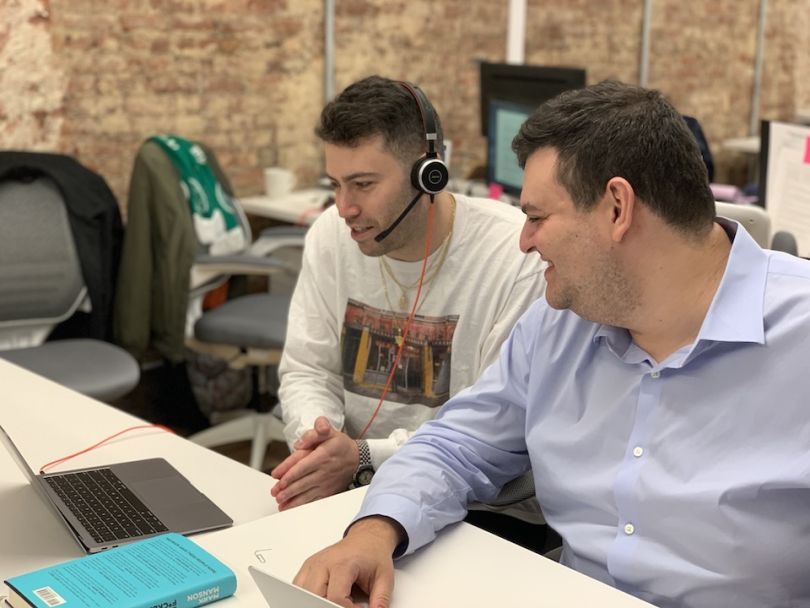
Jon Gorman said empathy was an important part of his evolution in becoming a leader. The senior sales manager at BentoBox shared how he learned how to provide actionable feedback to his reports and support them as best he can.
What’s the hardest lesson you’ve learned as a sales manager?
For a long time, I tried to emulate other successful managers I admired, but in the process, I wasn’t myself. I came off as either too demanding or too empathetic, and my reports weren’t reaching their potential. I felt uncomfortable giving difficult feedback needed for a rep to get better.
Eventually, I learned how to combine setting a high bar and showing empathy. I have found that most reps want someone who will set ambitious goals with them, help them grow, give them tough feedback and hold them accountable. The key to this is to truly caring and ensuring management is coming from a place of genuinely wanting them to succeed.
Reports should feel supported and ready to grow professionally.”
What do you wish you would have known sooner as a leader?
A manager’s primary goal should be to empower their reports. That can take drastically different forms depending on the person. Maybe it’s verbal praise in a company-wide meeting to boost their confidence, involving them in special projects so they feel like they are developing professionally or hopping on a call with them with a difficult customer so they know that you have their backs. No matter what it is, reports should feel supported and ready to grow professionally.
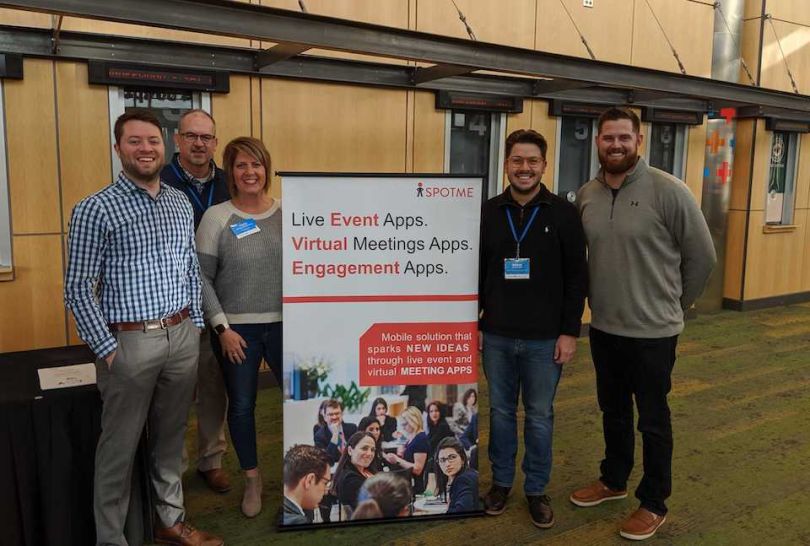
Daniel Egan said learning to appropriately push back on customer requests and manage his time have helped him grow as an account manager at SpotMe. He said the use of the two strategies have led to better outcomes for himself, his customers and his teammates.
What’s the hardest lesson you’ve learned as a sales manager?
I had to learn to say ‘no’ to a client when there was a good business reason for it. While this might sound like something that could cause friction, I have found that it leads to a more honest, productive and collaborative environment.
Clients appreciate the fact that their request was carefully reviewed, and that a thoughtful response was given with their best interest in mind. A “yes” can lead to an easy discussion initially. But long-term customer satisfaction will be much greater with a tough discussion following a “no” when necessary. This approach shows the value we put on their business and drives customer loyalty.
I had to learn to say ‘no’.”
What do you wish you would have known sooner as a leader?
I learned that anything that will take more than five minutes to resolve should be added to my calendar. Coming into the role, I would often start my day with a review of what needed to be done. But I didn’t account for the time each item added onto my schedule.
I realized that a good salesperson is strategic with their time. Now, I plan my week in advance to the best of my ability, accounting for recurring tasks like client follow-ups or weekly reviews. I often bundle those together and block time off to make sure I’m as efficient as possible with my deliverables. This is crucial to my productivity and allows for a smoother working process. I could have benefited greatly from getting this advice earlier.

Giving team members the freedom to tackle challenges on their own was a key lesson Director of Sales Austen Asadorian learned at SEVENROOMS. He said providing reps with agency can lead to a diversity of thought that helps the entire group be more successful.
What’s the hardest lesson you’ve learned as a sales manager?
One of the biggest lessons I’ve learned is to empower my team to be the best versions of themselves, while never putting them in a position to fail. Part of that is learning when to take a step back.
It’s important that we allow our team members to approach the problem in different ways, not just the way we think is best. This can lead to new learnings for everyone, strengthening the whole team through the diverse approaches of individual contributors.
You need to lean on your people to help your team grow.”
What do you wish you would have known sooner as a leader?
Don’t try to be the person with all the answers. As a manager, you get removed from the pulse of things more than you want to be. So you need to lean on your people to help your team grow in the ways that are best for them. Your job is to hire smart people that will move your team in the right direction.
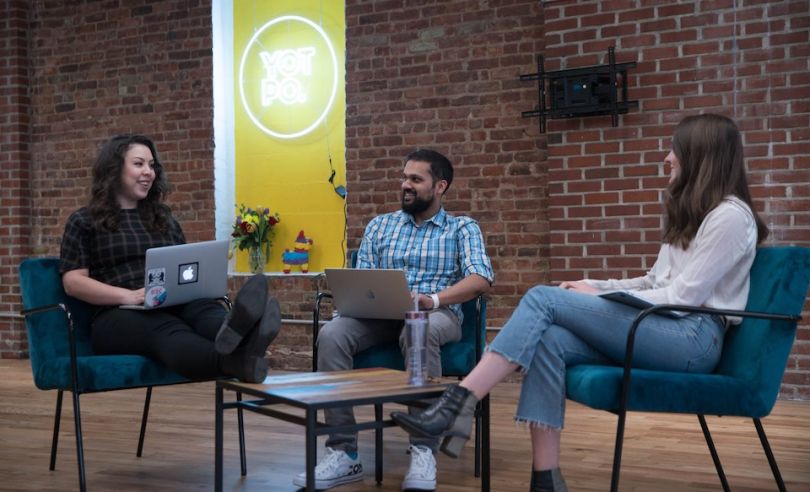
Yotpo’s Sales Manager Katie Drury said learning the value of community was an important part of her leadership journey. She faced the challenge of being the first person in her role on a scaling team. Drury said tapping peers for their guidance would have helped her early on.
What’s the hardest lesson you’ve learned as a sales manager?
I struggled with delegating. As a manager, you need to coach someone on how to do things on their own. Learning to take a step back, slow down and teach my team how to find an asset or solve a complex problem made a big difference. Eventually, my team was able to move more productively as they were less reliant on me, and I was able to be more present.
It was hard not being able to workshop ideas with people.”
What do you wish you would have known sooner as a leader?
Find a community of peers to work with. I was the first sales manager on a growing team. It was hard not being able to workshop ideas with people who have been in similar situations. I made a lot of mistakes that could have been avoided by leaning on those who have been there and done that.
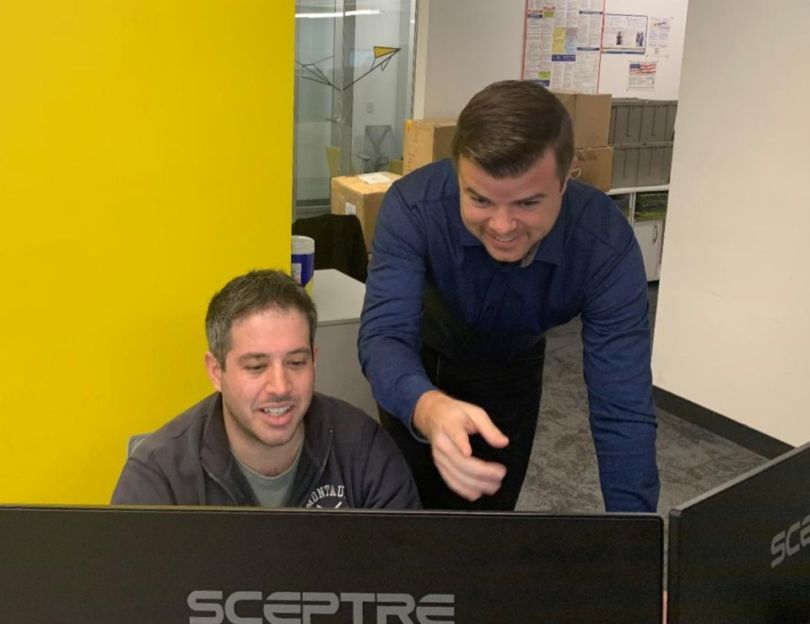
Cormack Glass, regional sales director Sisense, said when sales leaders develop personalized coaching methods, everyone benefits.
What’s the hardest lesson you’ve learned as a sales manager?
Early on, my focus was only on deal progression, rigid processes and a one-size-fits-all approach to coaching. Now, I make an effort to create personal relationships with each of my account executives and understand what motivates them. That relationship allows for a more personal approach to coaching and deal progression, which makes a big difference in our numbers.
Don’t be afraid to ask for help.”
What do you wish you would have known sooner as a leader?
Don’t be afraid to ask for help. There’s a natural level of insecurity around expertise and leadership. Someone new to a leadership might fear that asking for help equates to weakness. This causes hesitation in asking questions and bringing in resources.
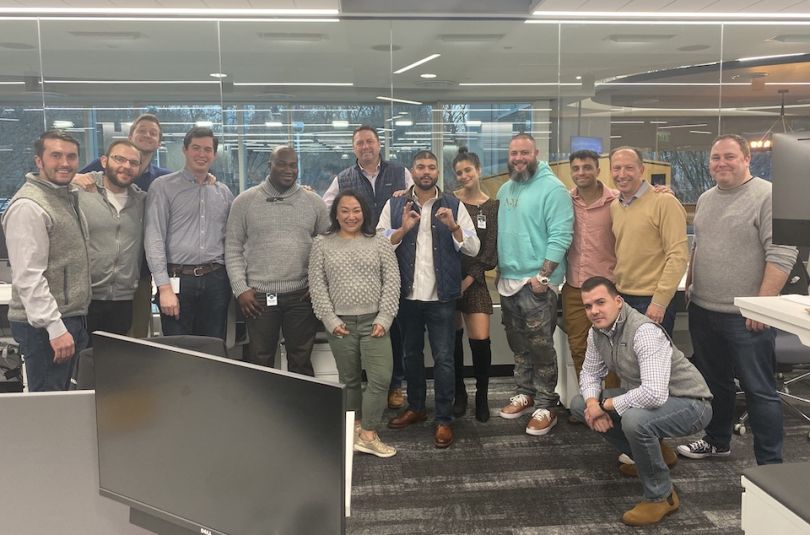
Investing time in building relationships with team members helps foster team culture. Alex Ortiz, OwnBackup’s regional VP of general business in the Americas, said getting to know his account executives as individuals has united his team.
What’s the hardest lesson you’ve learned as a sales manager?
I learned that culture is as important as results. That lesson has improved my emotional intelligence and helped me drive individual account executives toward personal and professional growth. I find connecting with co-workers beyond day-to-day work strengthens everyone’s commitment to the joint mission and company values.
Connecting beyond day-to-day work strengthens everyone’s commitment.”
What do you wish you would have known sooner as a leader?
You shouldn’t expect to have all the answers. And collaboration builds buy in. Getting a full 360-degree viewpoint when approaching a situation is a healthy exercise and can create vantage points that may otherwise be missed.
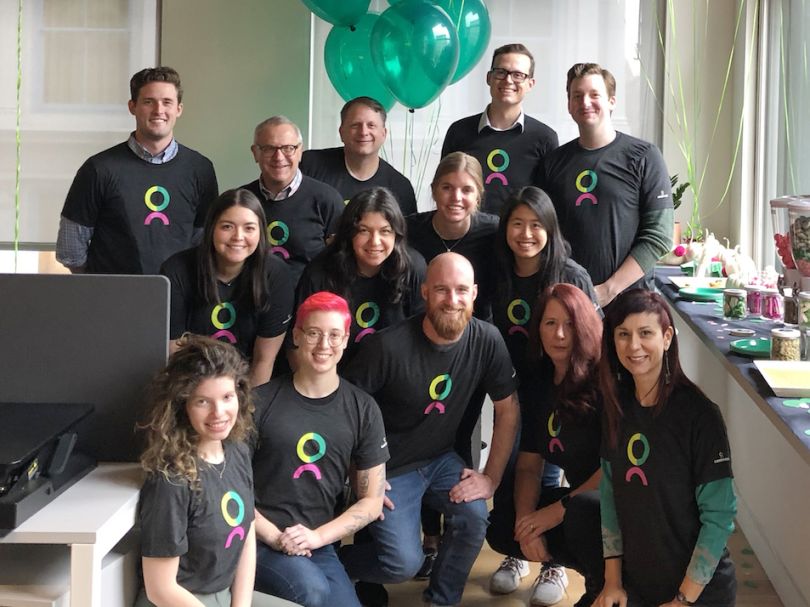
Sales Director Mike Riordan said exploring the diverse internal network of resources at his disposal at Centrical was a strategy he needed to learn to help his team close more deals.
What do you wish you would have known sooner as a leader?
“I wish I had known to leverage an organization’s resources to help deliver value through the entire sales process,” said Riordan. “Most companies have a wealth of resources that can assist sales. Those resources could be other leaders, solution consultants, market experts, product teams and a customer success team. They often bring different perspectives and it’s important to bring them in at the right time.
Riordan said, “These days, the buying experience revolves around a buying committee. Even if you believe you’re already the best salesperson, you need to draw on your company’s resources to win the day with client-buying committees.”









